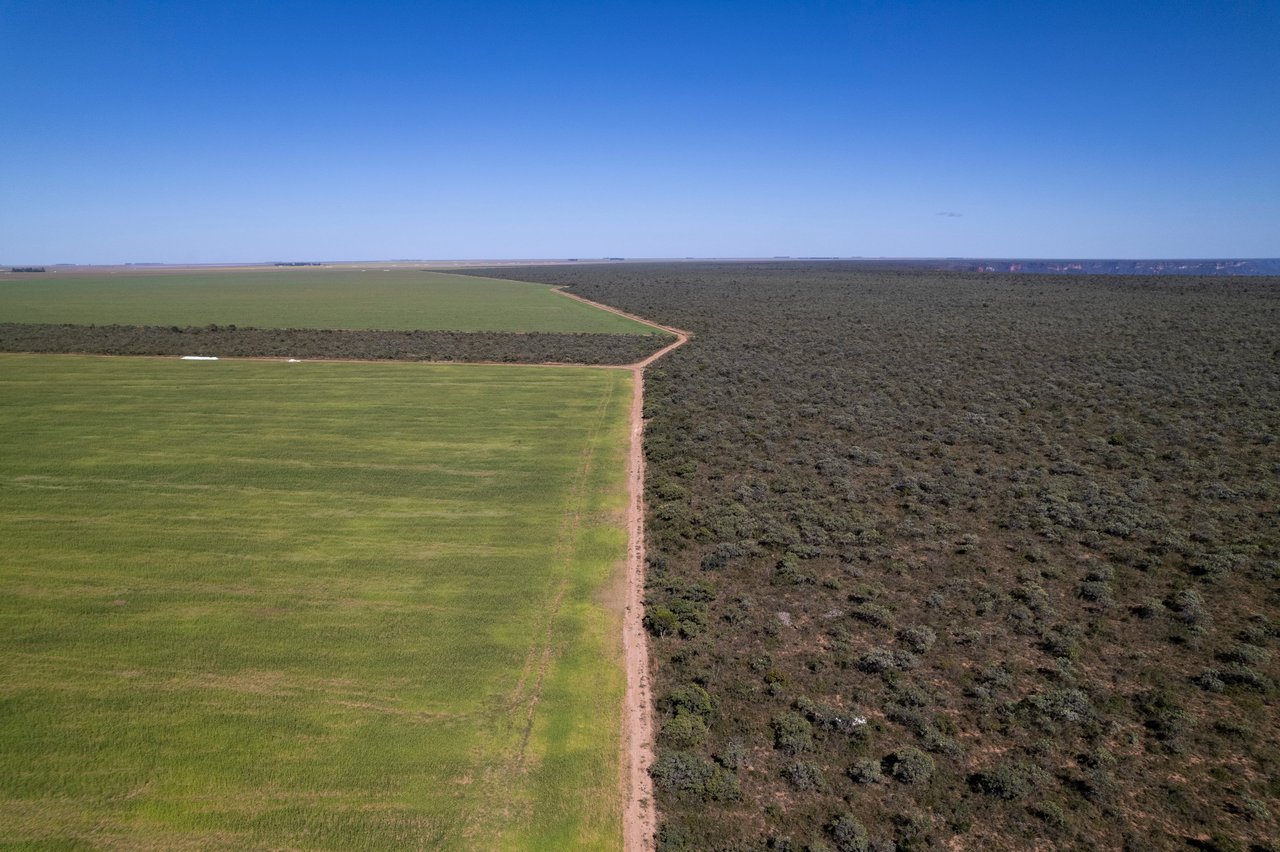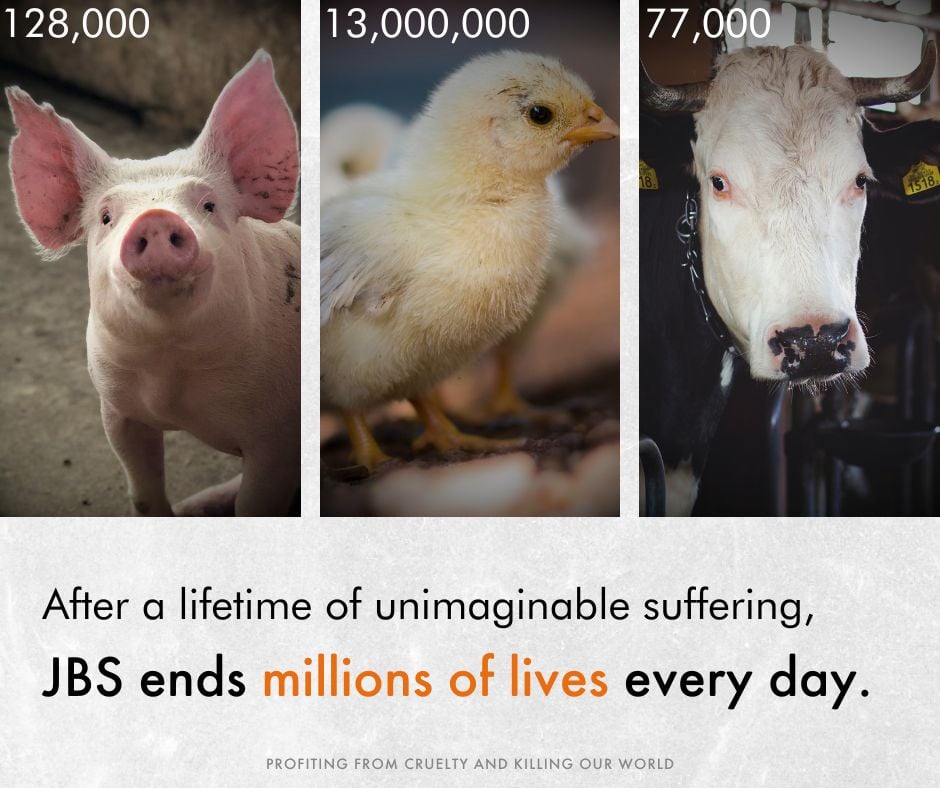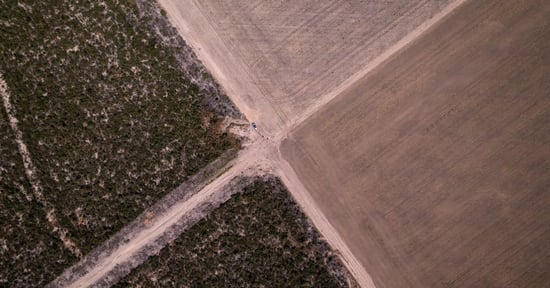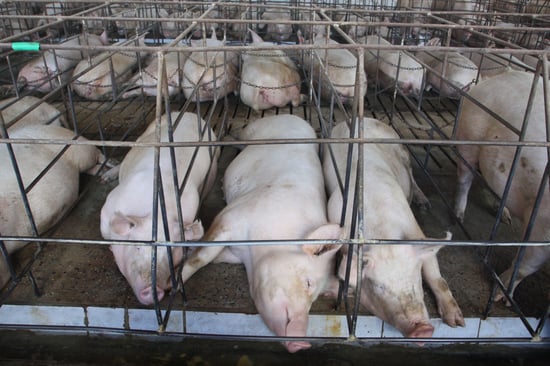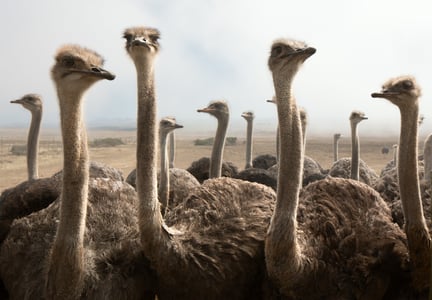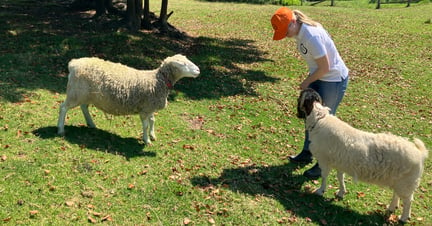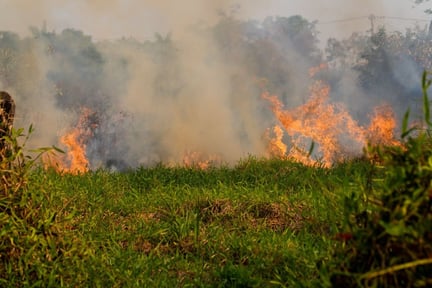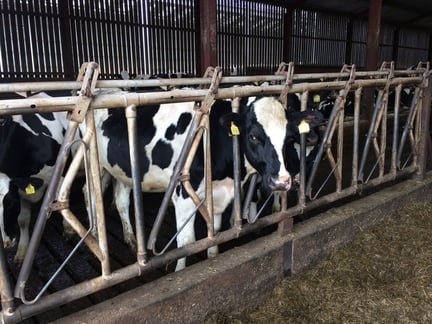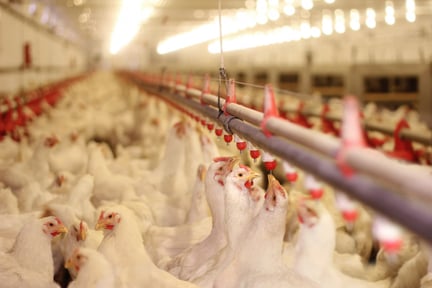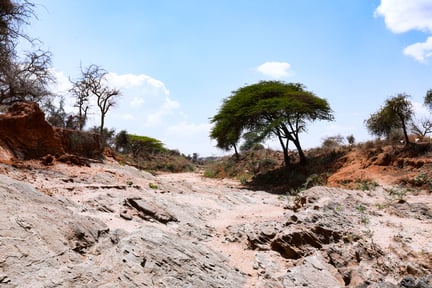JBS, the world’s largest meat processing company, embodies the worst practices of factory farming, the organisation contribute significantly to environmental destruction, climate change, and animal cruelty. Our vision is a world where respect for animals and nature defines a sustainable, equitable, and resilient food system.
JBS Values Profit Over Enviromental Devastation
Every meal tied to JBS has a hidden environmental cost. On top of their inhumane treatment of sentient animals is their shameless destruction of vital ecosystems, such as the Amazon rainforest, to create animal feed.
JBS alone is responsible for greenhouse gas emissions equivalent to 13.9 million cars annually, driven by its global meat production and animal feed supply chains.
Shockingly, JBS's policies allow legal and illegal deforestation in Brazil to continue until 2030 and elsewhere until 2035, despite their false public promises to combat climate change.
JBS Food: Animal Cruelty and Inhumane Farming Practices
JBS Foods' meat processing operations are rooted in systemic cruelty towards animals. In unimaginably vile factory farms, millions of animals—including pigs and chickens—are confined in cruel cages, overfed, and treated with drugs to prevent disease. These animals, capable of dreaming and playing, instead, endure industrial-scale stress and slaughter.
The resulting meat products are shipped worldwide to millions of unsuspecting shoppers, often unbranded, making it difficult for consumers to avoid supporting their harmful practices: could you be one of them?
Read the Report
JBS: The Global Face of Factory Farming
JBS is the world's biggest factory farming company that you have probably never heard of; yet, the JBS food company should be synonymous with environmental harm, animal cruelty, and unethical practices. While they may assert their commitment to climate action as they pursue global expansion, data indicates that we must act now.
- JBS's emissions have increased by over 50% in just five years, making it a growing threat to our climate.
- The US National Advertising Review Board found JBS guilty of making misleading claims, including their pledge to be net zero by 2040, calling their greenwashing tactics into question.
- The evidence of JBS's links to deforestation is staggering. In late 2022, NGO Mighty Earth documented 68 confirmed cases of deforestation tied to the company.
Goverments have the power to transition to a better food system that prioritises animal welfare, protects communities, and safeguards our planet. By exposing the JBS Group's harmful practices we can shift away from factory farming and toward a sustainable future.
What You Can Do
- Choose Better Options: Reduce or eliminate factory-farmed meat from your diet. Opt for plant-based or sustainably sourced alternatives to make a difference with your plate.
- Demand Transparency: Ask your supermarket or restaurant where their meat products come from and whether they’re tied to harmful practices like those of JBS.
- Push for Ethical Investment: Join us in urging financial institutions to withdraw support from JBS and redirect investments toward humane, sustainable food systems.
Stay updated and prepared to act against JBS. Subscribe to our newsletter today!
Frequently Asked Questions
What are the worst animal welfare violations linked to JBS?
JBS is the world's largest factory farming company, and it is responsible for the confinement and slaughter of over 5 billion chickens, 53 million pigs, 27 million cows, and 8 million lambs each year.
With JBS, factory farming and animal cruelty go hand in hand. Notorious for abusing sentient animals, JBS industrial farms are known to sever piglets’ tails without pain relief, house chickens together in spaces smaller than an A4 sheet of paper, and overfeed their animals to grow so unnaturally fast and large that their bodies collapse beneath them.
Beyond these inhumane practices, JBS is also linked to many major animal welfare violations across the world, including reports of horrifying systemic abuse of chickens in UK farms, of pig abuse in US slaughterhouses, and numerous scandals of mistreatment across Brazil.
Why should consumers boycott meat from JBS?
We are calling on all consumers to boycott JBS products. Why? Because global meat producer JBS is the biggest climate culprit, contributing greenhouse gas emissions equivalent to nearly 14 million cars on the road each year.
The environmental effects of factory farming driven by JBS are drastic. Its high demand for animal feed is one of the leading causes of deforestation for farming, devastating vital habitats and releasing massive amounts of carbon into the atmosphere. JBS also has links to cattle suppliers responsible for illegal deforestation of the Amazon rainforest.
JBS claims that it will reach ‘carbon net zero’ by 2040 — yet the company has made no efforts to lessen its influence and associations with illegal suppliers, correctly treat its farming waste, help mitigate climate change, or limit its greenhouse gas emissions.
Every purchase of JBS meat has a hidden cost of cruelty, environmental degradation, and corruption. We must act now!
What are alternatives for consumers who want to boycott JBS?
At World Animal Protection, we are advocating for a just food transition to transform the global system of industrial animal production. To do this, we need to challenge food system governance and hold corporations accountable, all while promoting animal welfare and environmental protection.
We also need to boycott farming giants like JBS and opt for sustainable, cruelty-free alternatives.
Better yet, consider switching to plant-based alternatives. There’s a growing variety of delicious meat alternatives on the market.
How much land does factory farming take up?
Half of the Earth's habitable land is used for agricultural purposes. And of that land, 77% is used to either grow crops for animal feed or as grazing land for animals. That’s why the environmental effects of factory farming are so significant.
And it isn’t only land that the global food system is monopolising. Factory farms are responsible for 70% of freshwater consumption, a 60% decline in wildlife populations, and over 30% of all greenhouse gas emissions.
The way agricultural land is treated is also a cause for concern. Pesticides used to produce animal feed harm wildlife and communities and cause pollution. This means that a large majority of the Earth’s land is being directly affected by the destructive practices caused by and related to factory farming.
Help us end factory farming.
Who owns most farms and factories in a capitalist economy?
You guessed it… JBS. Its pig and chicken production alone emits the equivalent greenhouse gas emissions of 14 million cars on the road each year.
To put that into perspective, JBS’s emissions are greater than those from all the cars in New York City and more than double the next biggest factory farming emitter. So, why is factory farming unsustainable? Because of JBS and its massive carbon footprint.
What’s particularly scary is that JBS claims to be doing all it can to reduce its environmental impact. But the company has no current public plan to achieve its ‘net zero’ promises or end factory farming and deforestation.
What can be done to hold JBS accountable for its role in factory farming and deforestation?
Let us be clear: giants like JBS can’t be allowed to continue their practices.
To mitigate factory farming’s environmental issues, governments need to hold factory farming companies like JBS accountable for the sake of people, animals, and our climate crisis. They can change rules and regulations for the food system to finally prioritise animal welfare and sustainability.
Join us as we ask financial institutions to withdraw their support from JBS and push for more ethical investments and practices.
How can consumers help reduce the environmental effects of factory farming?
As consumers, we have more power than we think to reduce the environmental effects of factory farming. We can:
- Demand transparency: Demand transparency about where our meat products come from. A small but significant act of defiance, it shows supermarkets and restaurants that we care about food sourcing and don’t want to be complicit in factory farming and animal abuse.
- Reduce meat consumption: Reduce our overall meat consumption, support plant-based alternatives, and advocate for change in our communities to normalise wanting change.
- Hold JBS accountable: Call on JBS to hold itself accountable for its direct and indirect emissions, publicly share a plan to reduce its factory farming’s environmental issues, and end its systematic animal abuse.
- Support our work: Support World Animal Protection’s research and advocacy as we fight to reduce the environmental effects of factory farming. Sign our petitions, sign up for our newsletter, and prepare to act against JBS.
